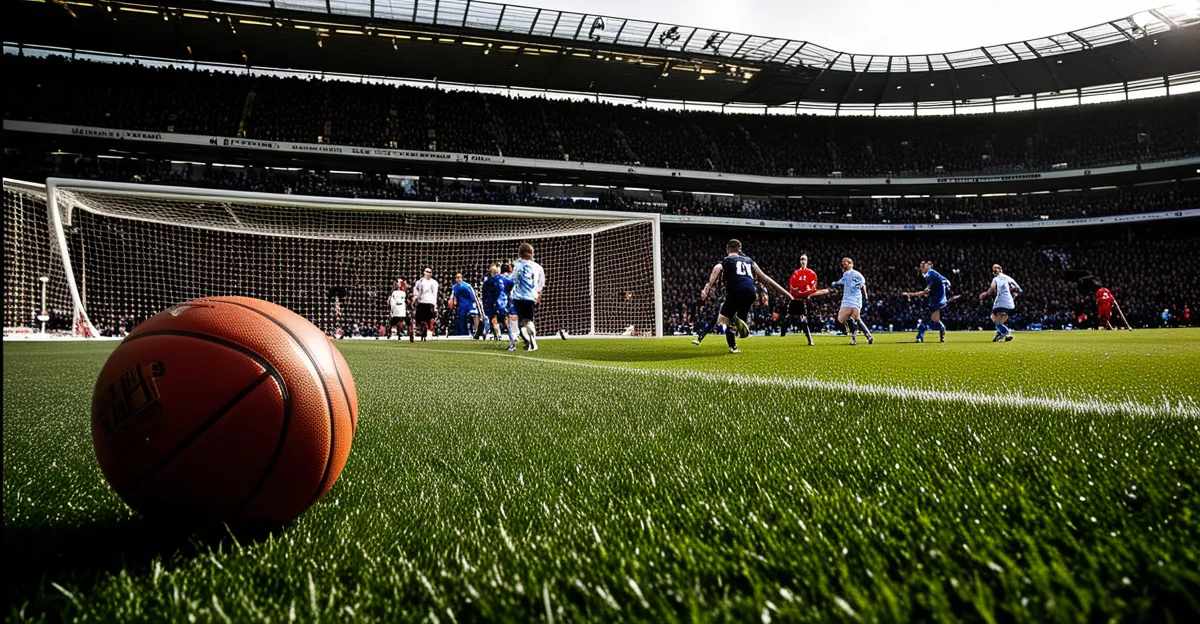Major Funding Constraints Across UK Sports
Funding shortages significantly shape the landscape of UK sports funding, affecting both elite athletes and grassroots programs alike. Public investment has seen fluctuations due to economic pressures, while private sports investment UK has become more cautious, creating a tighter financial environment. These combined trends exacerbate financial challenges in sport, making long-term planning difficult.
At the elite level, limited funding constrains essential resources such as coaching, training facilities, and competition opportunities. Conversely, grassroots sports often suffer from reduced community programs and diminished access to equipment and venues. The consequences ripple through the talent pipeline, as fewer young athletes receive the support necessary to excel.
This might interest you : What are the Key Challenges Faced by Amateur Athletes in the UK?
For example, recent reports reveal that many local clubs struggle to cover operational costs, reflecting a wider funding shortfall across the UK. This gap not only hampers development but also stalls initiatives aimed at widening participation and enhancing performance. Addressing these funding constraints requires a balanced approach that prioritizes sustainable sports investment UK strategies and actively involves public and private stakeholders committed to the future of UK sports.
Declining Grassroots Participation and Its Impacts
Grassroots sports UK are facing a significant sports participation decline, with fewer youth and community members engaging in regular activity. Studies show that barriers such as rising costs, limited local facilities, and competing digital distractions hinder participation. Many young people find it harder to access affordable and convenient grassroots sports UK programs, which exacerbates the trend.
Also to read : What strategies are UK sports organizations using to increase youth participation?
This decline affects more than just immediate involvement; it constrains the talent pipeline feeding elite levels, reducing the pool of future high-performance athletes. Additionally, community sports challenges include diminished social cohesion and fewer health benefits that arise from consistent physical activity.
Local clubs report struggling to attract volunteers and maintain programs, reflecting broader financial challenges in sport that disproportionately impact grassroots sports UK. Solutions require targeted sports investment UK to reduce participation barriers, improve accessibility, and revitalise community engagement. Without intervention, the long-term consequences risk not only sporting excellence but also public health and social inclusion.
Diversity and Inclusion Gaps in UK Sports
Diversity in UK sports remains a pressing issue, with underrepresentation of minority groups and women across many disciplines. Despite growing awareness, inclusion challenges in sport persist, limiting equitable participation and leadership opportunities. The structural barriers often include limited outreach, cultural perceptions, and unequal access to resources, which collectively hinder progression.
Efforts to address these gaps involve targeted programmes aimed at increasing participation from underrepresented communities. Sports organisations have introduced mentorship initiatives, diversity quotas, and inclusive policies designed to foster a more welcoming environment. However, measurable outcomes show mixed progress. While some sports report higher diversity at entry levels, retention and advancement, especially into leadership roles, lag behind.
The challenge is complex: representation in sport requires not only broadening participation but also transforming cultures resistant to change. Maintaining momentum demands sustained investment, effective policy enforcement, and ongoing dialogue with affected communities. Only with a strategic focus on diversity in UK sports can inclusion challenges in sport be meaningfully overcome, creating a more representative sporting environment for future generations.
Managing Athlete and Participant Mental Health
Mental health in sport has become a critical focus as psychological challenges in sport increasingly affect athletes at all levels. Many elite and grassroots athletes face issues like anxiety, depression, and burnout, often exacerbated by pressure to perform and limited support structures. Recent studies reveal that a significant portion of athletes report struggling with wellbeing, yet stigma and lack of accessible resources hinder open discussion and timely intervention.
Support systems vary across the UK, with some sports bodies offering dedicated mental health programmes. However, uneven implementation and insufficient funding mean many athletes cannot fully benefit. For example, athlete wellbeing UK initiatives highlight a gap between recognition of mental health as essential and practical, consistent care.
Notable campaigns and incidents have raised awareness, pushing organisations to prioritise mental health alongside physical fitness. Still, the challenge lies in integrating mental health support into everyday training and competition environments, ensuring early identification and ongoing care. Effective mental health strategies demand sustained sports investment UK, improved education for coaches and administrators, and a cultural shift towards acceptance, enabling athletes to thrive holistically within UK sport.
Brexit and COVID-19: Lasting Impacts on UK Sport
Brexit sport UK and the COVID-19 impact UK sports have significantly disrupted competition schedules and player movements. Restrictions and travel complexities caused by Brexit have limited the ease with which athletes and teams engage internationally. Coupled with COVID-19 lockdowns and health protocols, many tournaments faced postponements or cancellations, affecting athlete performance and fan engagement.
Financial and operational impacts on clubs and governing bodies are profound. Reduced matchday revenues and sponsorship withdrawals during the pandemic strained budgets already vulnerable due to Brexit-related uncertainties. Many organisations faced escalated costs from new customs regulations and testing requirements, aggravating existing financial challenges in sport.
Adaptations or recovery strategies underway include increased digital engagement to retain fan connection and diversified revenue streams to bolster resilience. Clubs are also adjusting to revised transfer rules and travel protocols, seeking to mitigate Brexit sport UK barriers. Strategic sports investment UK now focuses on restoring international competitiveness while ensuring operational sustainability.
Overall, Brexit sport UK and COVID-19 impact UK sports have reshaped both logistical frameworks and financial models, necessitating innovative governance and targeted funding to support recovery and future growth.






